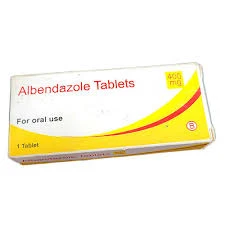- Afrikaans
- Albanian
- Amharic
- Arabic
- Armenian
- Azerbaijani
- Basque
- Belarusian
- Bengali
- Bosnian
- Bulgarian
- Catalan
- Cebuano
- Corsican
- Croatian
- Czech
- Danish
- Dutch
- English
- Esperanto
- Estonian
- Finnish
- French
- Frisian
- Galician
- Georgian
- German
- Greek
- Gujarati
- Haitian Creole
- hausa
- hawaiian
- Hebrew
- Hindi
- Miao
- Hungarian
- Icelandic
- igbo
- Indonesian
- irish
- Italian
- Japanese
- Javanese
- Kannada
- kazakh
- Khmer
- Rwandese
- Korean
- Kurdish
- Kyrgyz
- Lao
- Latin
- Latvian
- Lithuanian
- Luxembourgish
- Macedonian
- Malgashi
- Malay
- Malayalam
- Maltese
- Maori
- Marathi
- Mongolian
- Myanmar
- Nepali
- Norwegian
- Norwegian
- Occitan
- Pashto
- Persian
- Polish
- Portuguese
- Punjabi
- Romanian
- Russian
- Samoan
- Scottish Gaelic
- Serbian
- Sesotho
- Shona
- Sindhi
- Sinhala
- Slovak
- Slovenian
- Somali
- Spanish
- Sundanese
- Swahili
- Swedish
- Tagalog
- Tajik
- Tamil
- Tatar
- Telugu
- Thai
- Turkish
- Turkmen
- Ukrainian
- Urdu
- Uighur
- Uzbek
- Vietnamese
- Welsh
- Bantu
- Yiddish
- Yoruba
- Zulu
10 月 . 17, 2024 11:53 Back to list
Guide to Administering Ivermectin Injection in Cattle Safely and Effectively
How to Administer Ivermectin to Cattle
Ivermectin is a widely used antiparasitic medication, effective against a variety of internal and external parasites in cattle. When administered properly, it can help improve the health and productivity of the herd. However, it’s important to understand the correct methods of administration to ensure safety and effectiveness. This article will guide you through the process of injecting Ivermectin in cattle.
Understanding Ivermectin
Ivermectin is a broad-spectrum anti-parasitic agent belonging to the avermectin class. It is primarily used to treat infections caused by nematodes (roundworms) and ectoparasites such as lice, mites, and ticks. While it can be administered orally or through feed, injections are often preferred for faster absorption and action.
Preparing for Injection
Before administering Ivermectin, gather the necessary equipment - Ivermectin solution (ensure it is specifically formulated for cattle) - A clean syringe and appropriate needle (typically a 16 to 18-gauge needle is recommended) - Alcohol wipes or disinfectant - Personal protective equipment (gloves, goggles)
Dosage and Calculation
The typical dosage of Ivermectin for cattle is 200 micrograms per kilogram of body weight. To calculate the appropriate dose for your animal, follow these steps
1. Weigh the animal to determine its weight in kilograms. 2. Multiply the weight by the recommended dosage (200 mcg/kg) to find the total amount of Ivermectin needed. 3. Check the concentration of Ivermectin in the solution (usually expressed in mcg/ml) and calculate how many milliliters you need to draw up to meet the required dosage.
Choosing the Injection Site
When injecting Ivermectin, choose an appropriate site to minimize discomfort and ensure maximum efficacy. The preferred sites for intramuscular injections in cattle are the neck or the thigh muscles. Avoid areas with large blood vessels or nerves.
how to inject ivermectin in a cow

1. Neck Locate the injection site about 10-15 cm below the crest of the neck, on the side away from the jugular vein. 2. Thigh For an injection in the thigh, use the lateral aspect of the muscle, ensuring you are well away from the sciatic nerve.
Administering the Injection
1. Restrain the Animal Ensure the cow is properly restrained to prevent movement that could lead to injury. This can be done using a cattle squeeze chute or with the help of trained personnel. 2. Clean the Site Use alcohol wipes to disinfect the injection site. This helps prevent infection.
3. Drawing the Solution Draw the calculated dose of Ivermectin into the syringe, ensuring to expel any air bubbles.
4. Injecting Insert the needle at a 90-degree angle to the skin. Aspirate the syringe by pulling back slightly on the plunger to check for blood. If blood enters the syringe, withdraw and choose a different site. If no blood is present, inject the Ivermectin slowly and steadily.
5. Disposal Once the injection is complete, dispose of the syringe and needle in a sharps container following local regulations.
Post-Administration Care
After administering Ivermectin, observe the animal for any adverse reactions, although they are rare. Monitor the injection site for swelling or signs of infection. Ensure that the cow has access to fresh water and food after the procedure.
Conclusion
Administering Ivermectin through injection can significantly improve the health of cattle by effectively treating parasitic infections. By following these guidelines, you can ensure the safe and effective administration of this important medication. Always consult with a veterinarian for specific advice tailored to your herd and comply with local regulations regarding veterinary medications.
-
The Power of Radix Isatidis Extract for Your Health and Wellness
NewsOct.29,2024
-
Neomycin Sulfate Soluble Powder: A Versatile Solution for Pet Health
NewsOct.29,2024
-
Lincomycin Hydrochloride Soluble Powder – The Essential Solution
NewsOct.29,2024
-
Garamycin Gentamicin Sulfate for Effective Infection Control
NewsOct.29,2024
-
Doxycycline Hyclate Soluble Powder: Your Antibiotic Needs
NewsOct.29,2024
-
Tilmicosin Premix: The Ultimate Solution for Poultry Health
NewsOct.29,2024













